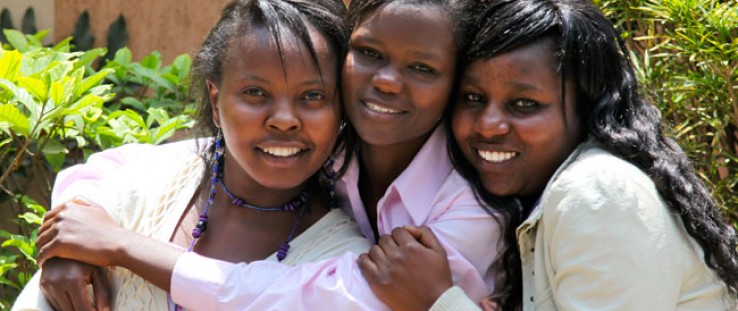 Carole Nyamoita, center, has known friends Elizabeth Njeri, left, and Cathy Magio since high school.
Clara Kakai, USAID
Carole Nyamoita, center, has known friends Elizabeth Njeri, left, and Cathy Magio since high school.
Clara Kakai, USAID
 Carole Nyamoita, center, has known friends Elizabeth Njeri, left, and Cathy Magio since high school.
Clara Kakai, USAID
Carole Nyamoita, center, has known friends Elizabeth Njeri, left, and Cathy Magio since high school.
Clara Kakai, USAID
On July 28 of last year, nearly 5,000 students at Jomo Kenyatta University of Agriculture and Technology in Nairobi, Kenya, hurled their graduation caps skyward triumphantly announcing their new status to the world; they had transitioned from students to graduates.
Among them was a lean, bubbly 22-year-old orphan for whom this accomplishment was no small feat.
As Carole Nyamoita sits at her computer on campus, completing applications for jobs in community development, she recounts the path she traveled from being a timid, underprivileged orphan to approaching the job market as a confident and high-potential candidate.
Nyamoita, like many other young women growing up in Kenya, faces the combined yokes of rampant poverty and high unemployment. Only 30 percent of women in Kenya have the chance to go to college. As most professional employment opportunities require a college degree, this leaves many women at a disadvantage, and more prone to exploitation and a lifetime of poverty. As one of three children of an unmarried mother, Nyamoita was at risk of continuing the cycle of poverty. To compound matters, her mother died while she was still in primary school.
Nyamoita’s transformation began with a unique mentorship program. “I joined the Global Give Back Circle in 2006 when it was a mentorship program that targeted orphans and vulnerable children. In 2008, we joined the Clinton Global Initiative and received tertiary education scholarships and comprehensive support to become global citizens,” says Nyamoita.
The program paired her with an American mentor named Ginny Devoogt. “Ginny has taken me under her wing since I was in high school and has been an influential role model who has given me valuable advice, including my career choice,” she explains.
Each girl is assigned a dedicated mentor who will write to her, encourage her in school, help her explore new possibilities and realize her dreams. Today, Global Give Back Circle mentors come from around the globe. Currently, over 380 mentors in nine different countries are a part of the Circle.
In addition to the mentoring and financial support for tuition and living expenses, the USAID-backed program provides practical labs in computer skills, life-skills workshops and internships to help young women like Nyamoita break the cycle of poverty and transition through tertiary education and into employment and independence.
The girls, and more recently young men through a parallel program called the “Window of Opportunity” initiative, are taught the value of giving back to their communities during and after graduating from the program to ensure sustainability and exponential success. They do so through making give-back commitments, which are formal pledges to perform community service, and agreeing to mentor the next generation of girls once they graduate and become self-reliant.
“The Global Give Back Circle is designed to holistically empower and enable a generation of once disadvantaged girls to change their circumstances and, as a result, change their communities,” says Catherine Kiganjo, senior program officer at the Kenya Community Development Foundation (KCDF), which implements the program in Kenya.
Linda Lockhart, an American woman with a passion for educating and empowering impoverished girls, founded the program in 2006, which became a Clinton Global Initiative in 2008 and since 2011 has received backing from USAID. A successful management consultant, Lockhart was inspired to launch the program after hearing President Bill Clinton speak about the need for a new model of global citizenship.
“I founded the GGBC to address what I felt was a critical gap in development that has left marginalized women in Kenya paralyzed against the inequalities they face,” said Lockhart. “GGBC can be seen as an ‘empowerment process’ during which girls in high school develop a strong relationship with a mentor who guides them in planning for their future while they engage in activities that increase their participation in society and access to employment opportunities.”
Empowered, Selfless and Capable
In May 2012, Carole Nyamoita completed two certificate courses in basic computer skills. She now moves between her Internet job search and answering questions about the program that changed her life. “The Global Give Back Circle has enabled me to get a university diploma so that I can become empowered, selfless and capable,” she says.
For the past four months she has been an intern at Support for Addiction Prevention and Treatment in Africa (SAPTA) as a HIV testing and counseling facilitator working with mostly female drug addicts. She does it with a discipline and maturity beyond her years. “These experiences have been fulfilling and have strengthened my resolve to improve the lives of communities in need,” she says.
“Carole is passionate about her work and we are very pleased with her passion and dedication,” says colleague Judith Muthoki Mutwii.
Before SAPTA, Nyamoita was volunteering twice a week at a children’s home on the outskirts of Nairobi. When a fire broke out in one of Nairobi’s informal settlements in 2011, she was among the volunteers who served alongside humanitarian organizations to bring relief to the affected communities for one month. “These experiences have … strengthened my resolve to improve the lives of communities in need,” she says.
It is this remarkable commitment to community that has inspired the growth of the program over the last three years. In Kenya, 20 corporate partners including Equity Bank, Microsoft, Standard Chartered Bank, MasterCard Foundation, Safaricom Foundation, Deloitte, Surgipharm, ATE Bank of Greece and Barclays Bank contribute to the program, which has grown from supporting 35 needy girls at inception to over 500 today.
USAID joined the commitment in February 2011, contributing $3.5 million for a three-year period. “We are making a statement about our belief in the value of empowering girls because this translates to an empowered society,” says James Hope, acting mission director for USAID/Kenya.
If Nyamoita’s impressive journey is anything to go by, then the program is posed to produce phenomenal results in the future.
According to Lockhart, it is time to exponentially increase the number of program beneficiaries. “One thousand girls who give back equals 1,000 girls squared,” she says. “One thousand girls squared is a sustainable movement. This is no longer just a good idea—it’s a moving train and we invite all of you to come onboard and be part of it.”







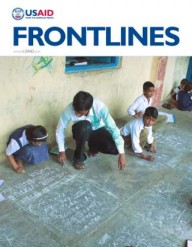

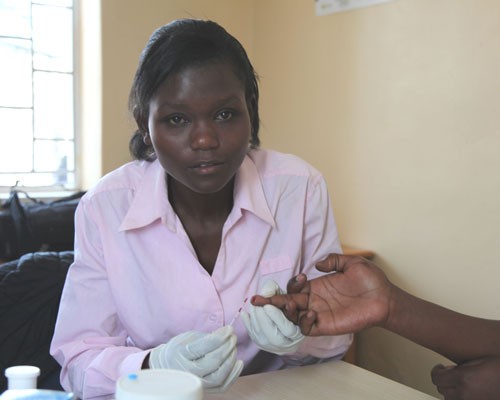
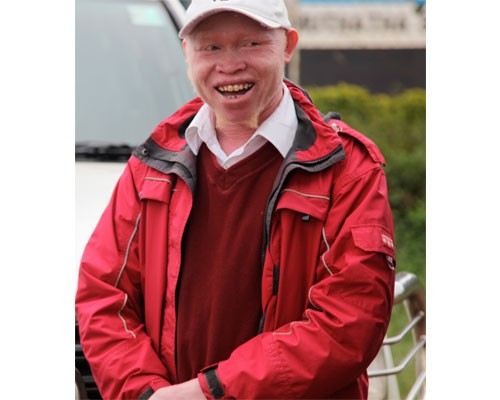
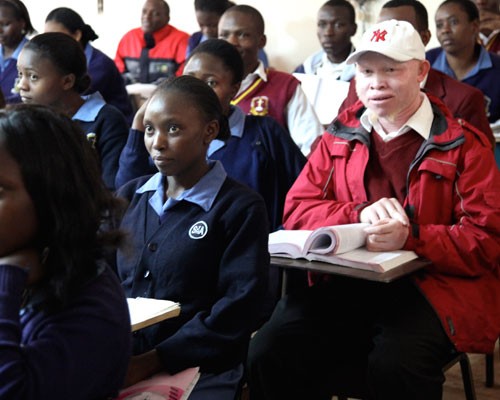
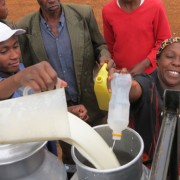
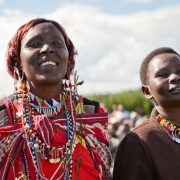
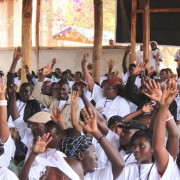
Comment
Make a general inquiry or suggest an improvement.